
How to Support DEI Initiatives in the Workplace
Bring your DEI strategy to the next level by investing more in inclusive benefits, changing your recruiting pool, or using new training software.
Diversity, Equity and Inclusion


PR Director at FinanceJar

VP of Operations at Essenvia

CEO of The Best of Calgary

Marketing Manager at The Big Phone Store

CEO of TotalShield

Human Resources Director at Family Destinations Guide

Head of Growth at Instrumentl

Founder of Aspiring Families

Privacy Expert at Restore Privacy

CEO & Founder of Breadnbeyond

Co-Founder of Milkwhale

Co-founder & CEO of Leena AI

Co-founder & Personnel Supervisor at Imgkits
Cultural shifts in the workplace evolve with societal changes.
Witnessing how technological advancement influenced the nature of work and skills and the rise of the four-day work week, or how the COVID-19 pandemic affected and shifted employees’ priorities, it’s only natural to assume that company culture is also progressing.
Just a few decades ago, as counterproductive as it might sound, employers primarily used fear and threats to “motivate” workers. Research shows that this tyrannical management style negatively influenced workers, decreasing their self-esteem and job performance.
Although it persists to some extent to this day, in an attempt to increase performance, motivation, and the overall mental health and wellness of their employees, companies are nowadays shifting to positive values, like respect and dignity, in the workplace.
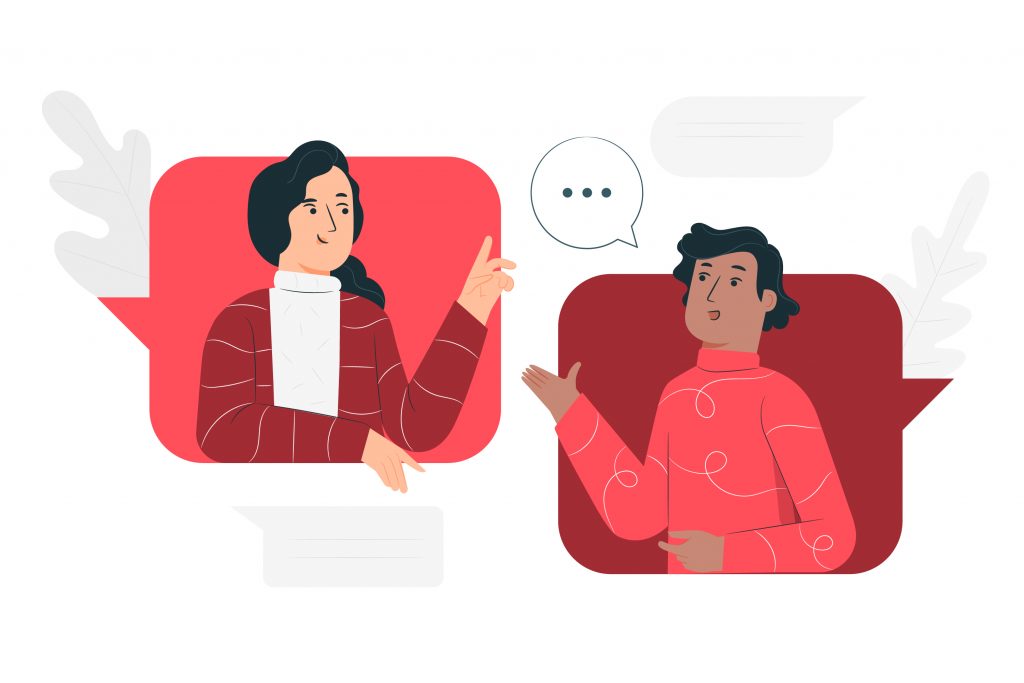
“To foster a workplace devoid of intimidation and harassment is to practice respect and consideration,” says Elena Jones, PR director at FinanceJar.
Jones adds: “By creating an environment of professional relationships where all employees are honored and treated with dignity, companies have to ensure their workplace is accommodating to all workers.”
Although company culture differs from one organization to another, it’s often associated with ideas like “inclusiveness,” “fun,” or “empowerment.”
Yet, dignity and respect, although not mentioned as often, remain the pillars of a cohesive and successful work environment.
According to Daivat Dholakia, VP of operations at Essenvia, “Focusing on dignity in the workplace will create a respectful environment that is also one of inclusivity, as well as acceptance.”
Using well-rounded research backed by insightful experience from employers and employees, this Shortlister article explores what dignity and respect in the workplace represent and why and how companies should promote them.
A Frontiers Media research article on the evolution of workplace dignity (WPD) defines this concept as the individual’s perception of trust and respect in the workplace. It also includes equal and fair treatment, valuation of one’s worth, autonomy, freedom of expression, and enjoyable decision making.
The two main elements of the definition, respect and dignity in the workplace, are reciprocal.
When asked what dignity is in the workplace, many would often associate it with mutual respect, among other aspects.
According to CEO of The Best of Calgary, Bianca Tremblay: “Workplace dignity is a key component of a healthy work environment.”
For Tremblay, a more comprehensive definition on the matter, originally from a Willis Towers Watson report on workplace dignity, encompasses three key dimensions:
“Dignity at work.
In an environment free from marginalization, workers are treated with respect. The freedom to be themselves, express their problems and receive attention gives them a feeling of psychological safety. Organizations can attract and keep diverse talent by fostering a culture of dignity. It serves as the basis for inclusion. Additionally, it assists in addressing workplace stress as one of its sources.
Dignity in work.
Employees are motivated by their job and see how it advances the company’s overall objectives. They take pride in what they do because it is respected, and they anticipate a future where employers will place a high priority on restructuring and lifelong learning even as jobs are redefined due to technological advancements and other changes.
Dignity from work.
Because they are paid fairly, can maintain a reasonable quality of living, and are secure in their benefits to offer the stability they need to support themselves and their families, employees feel appreciated and have the well-being to succeed both now and in the future.”
From an employee’s point of view, WPD can also be associated with having one’s voice heard and their opinions respected.
Brandon Wilkes, a marketing manager at The Big Phone Store, defines dignity as “a feeling of self-respect and self-worth. It is feeling valued and respected by others.”
Ultimately, as a philosophical phenomenon whose acceptance and implementation depend on many factors, WPD could have as many distinct definitions as there are organizations.
Yet, its benefits are undeniable.
According to a SHRM survey, almost 50% of all respondents ranked their immediate supervisor’s respect for their ideas as “very important” to their job satisfaction.
On the other hand, a Willis Towers Watson report found that a culture of dignity in the workplace is an essential driver for employee well-being for up to 95% of companies.
Additionally, 70% of employers recognized WPD as a crucial factor for their current success and development over the past three years, while 94% of them saw it as essential to their success for the next three years.
The survey findings also point out the correlation between dignity and employee behaviour, including their wellness, retention, and inclusion.
Namely, 95% of respondents believe a culture of dignity is the driver of talent acquisition and retention, 94% agreed it helps with work engagement, while 93% believe WPD helps the organization’s overall performance.
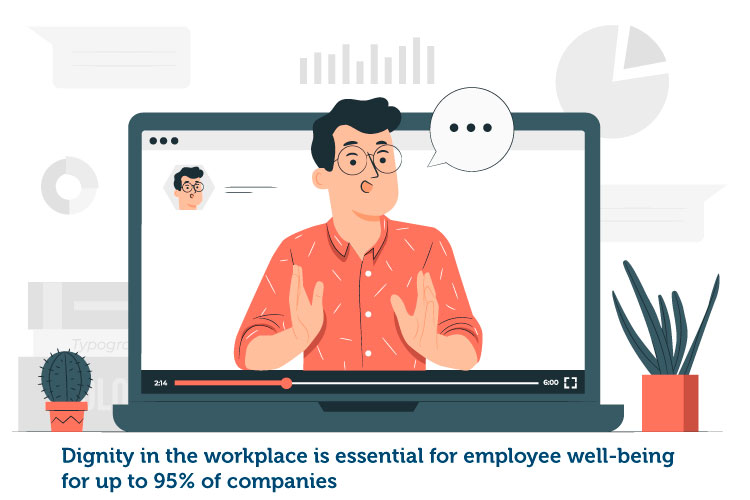
For CEO of TotalShield, Adam Rossi, cultivating a high sense of workplace dignity for all starts with incorporating mutual respect, freedom of expression, and gratitude as ideals in workplace culture.
According to Rossi, “Building these into the foundation of your company culture will help all of your employees feel that they are getting the respect they deserve.”
How a company fosters these ideals and shapes employee experience largely depends on its leadership and the willingness to promote and nurture them. But, once established, all management levels and employees play an equally important role in maintaining such a culture.
Human Resources Director at Family Destinations Guide, Bonnie Whitfield, shares a set of examples of dignity in the workplace.
According to Whitfield, one can demonstrate dignity in the workplace in many ways, including:
Sometimes showing respect to coworkers could be as simple as an open-door policy that enforces employee trust and respect.
Reflecting on his own experiences, Head of Growth at Instrumentl, Will Yang, believes that this can allow everyone to talk to coworkers about anything at any time.
Yang explains: “This was important because it gave employees the opportunity to speak up about things that didn’t feel right or were unfair to them, without fear of repercussions or being ignored.
Another example would be giving employees breaks during long work days so they can get some fresh air and stretch their legs out while still being productive members of the team.”
Ultimately, there isn’t a one-size-fits-all approach.
Whether a small company or a large organization, it’s up to the employer, with the help of the management and HR, to find the best way to build a culture around dignity and respect and engage all its employees.
For example, Azmaira Maker, Founding Director at Aspiring Families, believes that dignity takes on several forms and definitions in a highly interactive, competitive, and possibly aggressive environment like the workplace.
In Maker’s words: “To particular groups of employees, a simple act such as being accepted as part of the workforce could bring dignity.
To others, it could mean the freedom to follow their chosen belief system without resistance or prejudice.
From being spoken to in a tone of respect and equality to finding their ideas acknowledged and considered, dignity does, indeed, take on several forms in a work environment.
However, as diverse as these examples may seem, it is important to adopt a balanced approach to identify and maintain dignity.”
On average, people spend more than 13 years of their lives working.
So, the least an organization can do to increase employee satisfaction is to create a work environment based on respect and dignity.
The latest Gallup State of The Global Workplace report stated that employees are basically “living for the weekend” and that their work engagement is stagnant, despite the previous decade-long global rise.
In fact, statistics show that only 21% of employees felt engaged at work, while stress reached an all-time high of 44% globally.
Most workers are not very optimistic, nor do they find their work meaningful.
Their leading cause of dissatisfaction was the unfair treatment they received at work, followed by excessive workload, lack of support from the management, and extreme time pressure.
“Dignity is about respect, it’s about attention, it’s about compassion. Therefore, it MUST start with management,“ says Bill Mann, a privacy expert at Restore Privacy.
Mann continues by stating:

As a result, businesses with happy employees who feel valued by their managers and employers are more likely to experience lower employee turnover or absenteeism rates.
To a great degree, companies that put effort into their employees and nurture the correct values, be it diversity, dignity, equality, inclusion, or respect, will get the same treatment in return.
Although it starts from with management, none of these can thrive within an organization unless all members are on the same page.
When they’re not, it’s the responsibility of the leadership to listen, learn, and promote the right values.
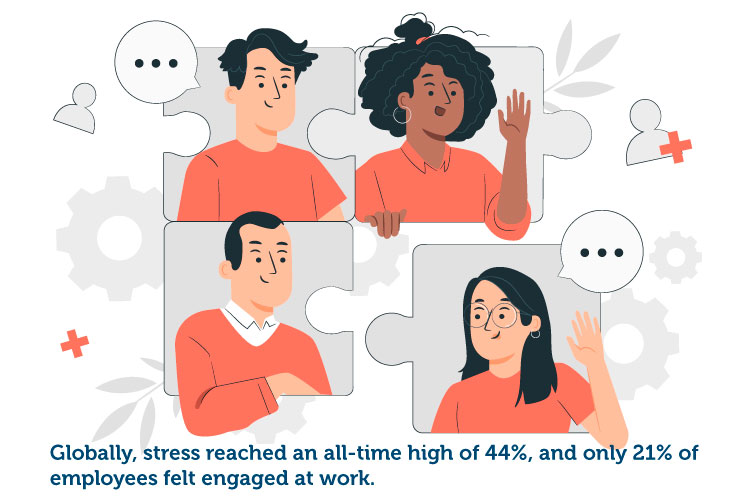
“Everyone has a role to play in creating a respectful work environment, and it starts with each individual treating their colleagues with dignity and respect,” says Andre Oentoro, CEO and founder of Breadnbeyond.
Without this, there could be no dignity in the workplace or a happy workforce.
Ebnu Sudarso, the co-founder of Milkwhale, agrees with this sentiment, saying that: “Having happy and healthy employees will make the working atmosphere much better. It can also increase productivity and engagement.
So, it should be important to encourage both employees and employers to treat one another with respect and dignity.”
But the question remains, how does one do it?
Promoting dignity in the workplace means:
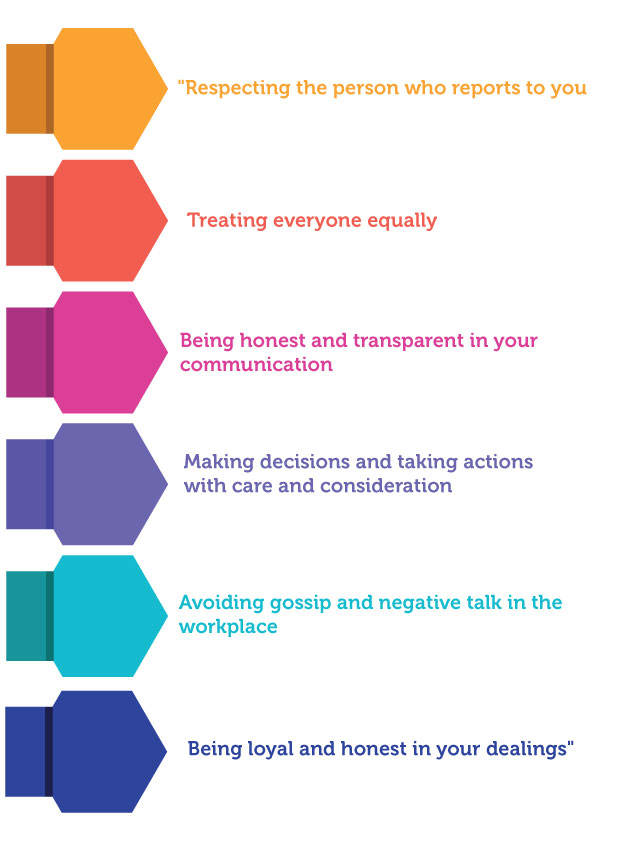
Adit Jain, co-founder and CEO of Leena AI, explains what his company does to promote dignity in the workplace.
“At Leena AI, we ensure that our employees feel valued and heard at all times.
Our employees are the backbone of our business, and we try to ensure that they are always treated with the utmost respect and dignity.
We conduct regular surveys, host town hall meetings, and focus group discussions with our teams so that we can take in their input and develop ourselves in a better way as an organization.
We also promote a culture of innovation that allows our employees the freedom to experiment and innovate on new ideas.”
“No company is perfect. However, every company should strive for a work environment that encourages an optimistic culture,” says Amanda Royle, the co-founder and personnel supervisor at Imgkits.
For Royle, dignity and respect in the workplace mean: “Being in a safe environment without risking your physical and mental health.”
The core of workplace dignity and respect lies in the golden rule of treating others how one wants and expects to be treated.
It ultimately creates a cohesive surrounding by treating people as equals while accepting and celebrating their differences.
Seeing how many companies are on board with this cultural shift, perhaps dignity in the workplace will become the standard rather than the exception.
Browse our curated list of vendors to find the best solution for your needs.
Subscribe to our newsletter for the latest trends, expert tips, and workplace insights!

Bring your DEI strategy to the next level by investing more in inclusive benefits, changing your recruiting pool, or using new training software.

Transform your workplace into an inclusive and empowering environment for women with these eye-opening statistics. Unlock the potential of gender diversity and drive positive change in your organization.
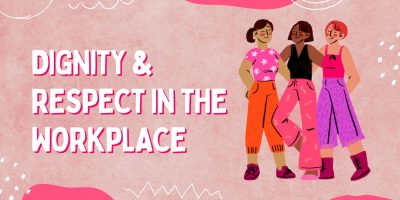
Can dignity and respect in the workplace become a standard rather than an exception?

Unlock a more inclusive, supportive, and empowering future for women in the workforce.
Shortlister Connect is a tool specifically designed to be utilized by the HR and Procurement/Sourcing teams within mid-size, large and jumbo employers. Shortlister Connect allows these teams to efficiently research & identify their optimal vendor partners, track existing vendor relationships & performance and “connect” with other employers to share successes and vendor experiences.
If you are not on the HR or Procurement/Sourcing team within an employer with over 200 employees, you will not be granted access to Connect. Examples of individuals that would not be granted access include, but are not limited to: vendors, students, practitioners, researchers, other non-employers or anyone that is unwilling to identify themselves will not pass our vetting criteria. If you are a consultant, Shortlister offers a specialized product for consultants, called Shortlister Select. You can email Tom Ciccotti at tciccotti@myshortlister.com to learn more about Shortlister Select.
***Shortlister retains the exclusive right to grant or deny access to any party to ensure the privacy of the vendors in our system.
Please login with your LinkedIn Credentials
Used by most of the top employee benefits consultants in the US, Shortlister is where you can find, research and select HR and benefits vendors for your clients.
Shortlister helps you reach your ideal prospects. Claim your free account to control your message and receive employer, consultant and health plan leads.